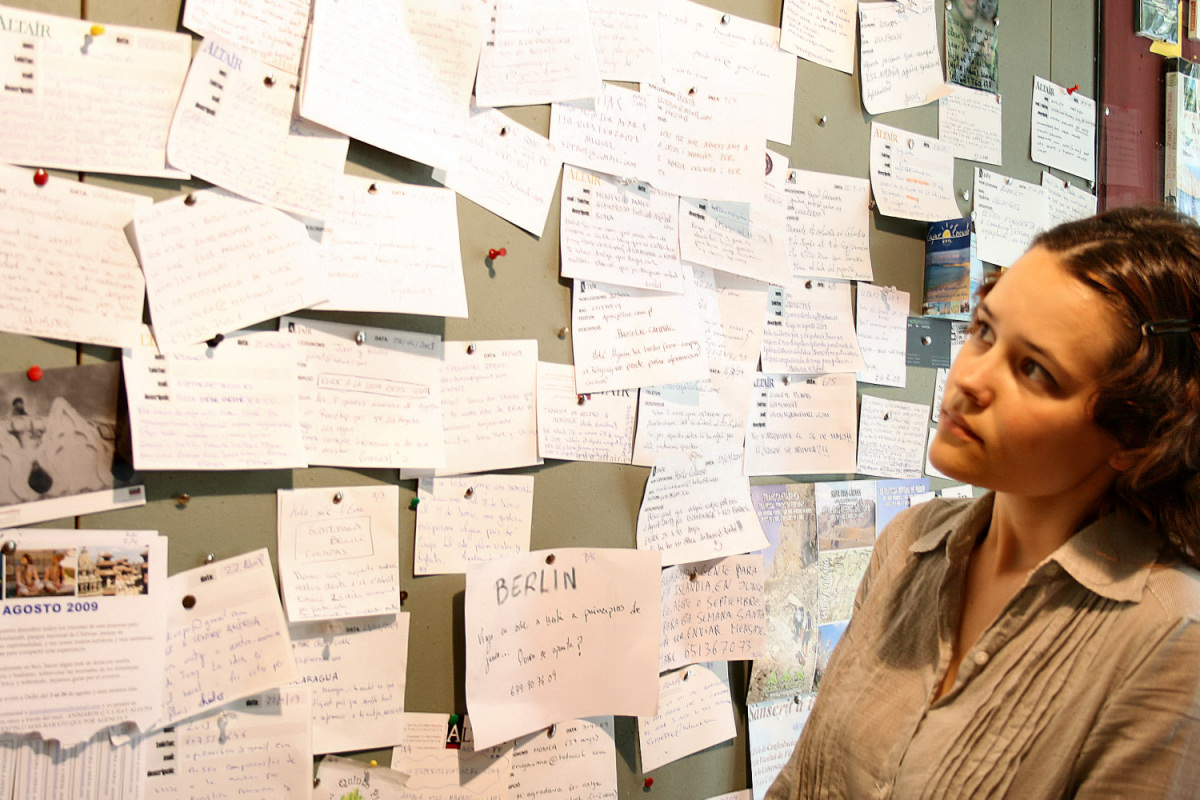Difference between revisions of "Template:Latest news"
Shawndouglas (talk | contribs) (Created template to take the place of updating the front page manually.) |
Shawndouglas (talk | contribs) m (Protected "Template:Latest news": Locked as if front-page content ([Edit=Allow only administrators] (indefinite) [Move=Allow only administrators] (indefinite))) |
Revision as of 16:54, 25 August 2014
August 25, 2014:
Have you ever experienced information overload? Maybe you were like the person in this image at one point, baffled by too many choices and not enough organization. Yet as society continues its march towards further digitizing and storing content and data, finding exactly the information you want becomes increasingly daunting. Organizing and presenting large amounts of information well is now a desirable trait, whether it's a programmer developing a user interface and query tools for laboratory informatics software or a teacher creating an online course using a learning management program like Moodle.
We've also tried to be cognizant of this problem when determining how to present information in this wiki. The front page has evolved to better and more appealingly organize data access into little "portals" or jumping-off points. But even that becomes increasingly daunting as wiki content continues to be added. This requires a more thoughtful approach using built-in and third-party tools for the wiki software. One recent attempt to organize information involves the use of MediaWiki's category tags to better effect. I personally create 18 broad categories that all or most of our non-vendor wiki content falls under. The results of that effort can be found at the LIMSWiki:Glossary page. Some may find those categorizations too broad; however, articles can have more than one category. I want to use these 18 categories (with the potential for more later) to cover the entire non-vendor article base. Additional category tags can be applied to further granulate those categories, including crossover. For example, electronic data interchange may be categorized under the glossary category "Software and hardware terms" and hospital information system under "Software systems," yet both share the category tag "Health informatics."
Another attempt to organize this wiki's content is via the MediaWiki Collection extension. This allows users to render wiki content into a digital book-like structure. We have a live example with the The Complete Guide to LIMS & Lab Informatics. The upside is a user can learn about a topic from a curated collection of wiki content. The downside is the content is static, meaning like traditional published documents a new copy must be made to contain updated content. However, we've included live links to the contained articles on the wiki page.
As we continue our efforts to add more content, we're hoping tools like the glossary and Collection continue to make approaching the wiki's content less intimidating, alleviating the worries of information overload. We'll also continue to evaluate the front page and how it can be used to better make content easier to find.
Shawn Douglas (talk) 12:53, 25 August 2014 (EDT)
April 30, 2014:
I wanted to highlight some of the projects we've worked on over the past few years. I feel like as the wiki grows, some of the tools buried within it tend to get lost. First, I'd like to again mention the LIMSwiki informatics resource portal. This project was dedicated to collating as many useful online scientific and health informatics-related materials and research tools as possible. It includes links to books, magazines, journals, blogs, organizations, special-interest groups, government entities, academic programs, conferences, trade shows, research tools, job boards, and a whole lot more related to laboratory, health, and other types of informatics. I can't stress enough how extensive we've tried to make this collection of resources.
We have other resources too that shouldn't go unnoticed:
- The Laboratory, Scientific, and Health Informatics Buyer's Guide: a guide to buying informatics systems, with a list of vendors who have public pricing
- LIMSWiki:LIMSforum and LIMS/LI forum posts: a collection of popular laboratory informatics discussions dating back to 2010
- The LIMS and laboratory informatics questionnaire: a request for information (RFI) document to help users in buying an informatics system
- Limspec: a related but different tool for building a personalized collection of cataloging requirements and vendor questions
Shawn Douglas (talk) 17:43, 30 April 2014 (EDT)










